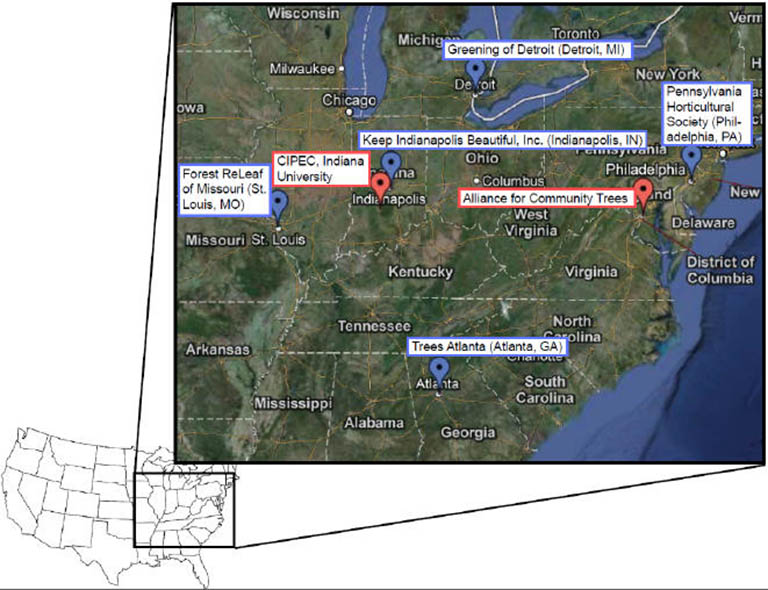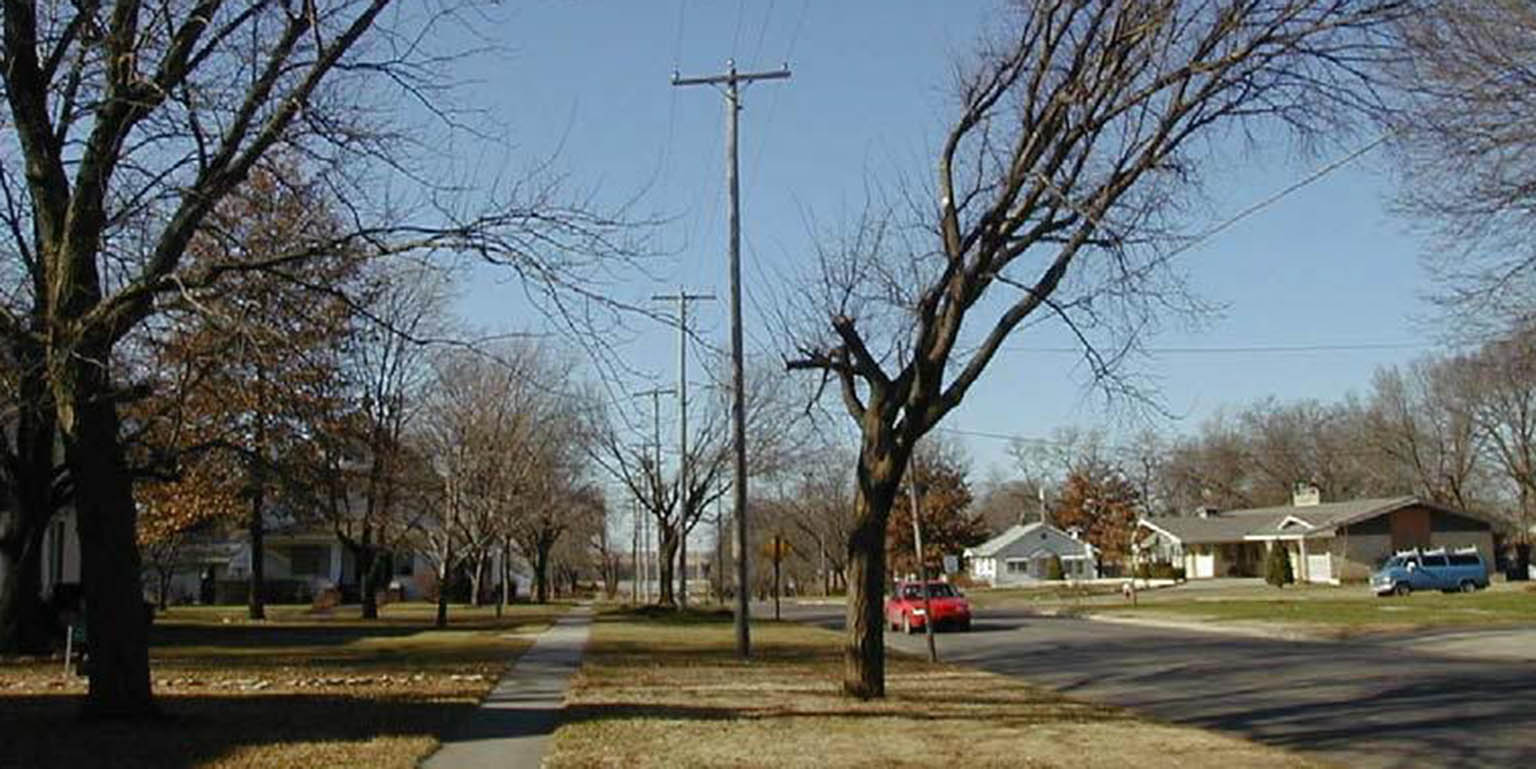Our first objective
The first objective relates to understanding the ways that tree-planting programs can maximize the biological outcomes (i.e., ecological benefits) of the program: planting successful urban trees that survive and grow in the urban landscape. We will address three broad categories of variables in the social-ecological systems (SES) framework that might influence the success of the urban forest.
- Vegetative resource (trees) and the biophysical environment: What types of trees planted (e.g., planting stock, species) are the most successful under various urban growing conditions? What effect do various local environmental factors (soil volume, light availability, competition with other trees, etc.) have on tree success?
- The surrounding community: What characteristics of the neighborhood (social/cultural, economic, demographic, etc.) are related to tree success?
- Institutional and management practices: What role does management and maintenance (e.g., watering, pruning, etc.) at the neighborhood level play in tree success? What management institutions (i.e., rules-in-use, norms) are the most important to tree success?
We utilize the urban forests as SES perspective to better understand the biophysical, social, and management factors that influence urban tree success.
See more on the urban forests as SES perspective
Our second objective
The second research objective relates to the social outcomes of tree-planting programs by asking about the indirect social impacts on the neighborhood of these programs. This question considers tree-planting programs from a different direction than the first question. We ask, how does tree planting impact the characteristics of the community? The theoretical justification behind this question is based in theories that collective action—tree planting and early maintenance (i.e., watering), in this case—may impact other forms of collective action taken by the neighborhood or other characteristics of individuals, such as a sense of neighborhood ownership or engagement in civic environmentalism or adaptation to climate changes. Interest in the social impacts of tree-planting programs on communities or individuals is growing, and in this study we search for specific, quantifiable effects of urban tree-planting programs and consider how these effects can be related to climate change adaptation strategies.



